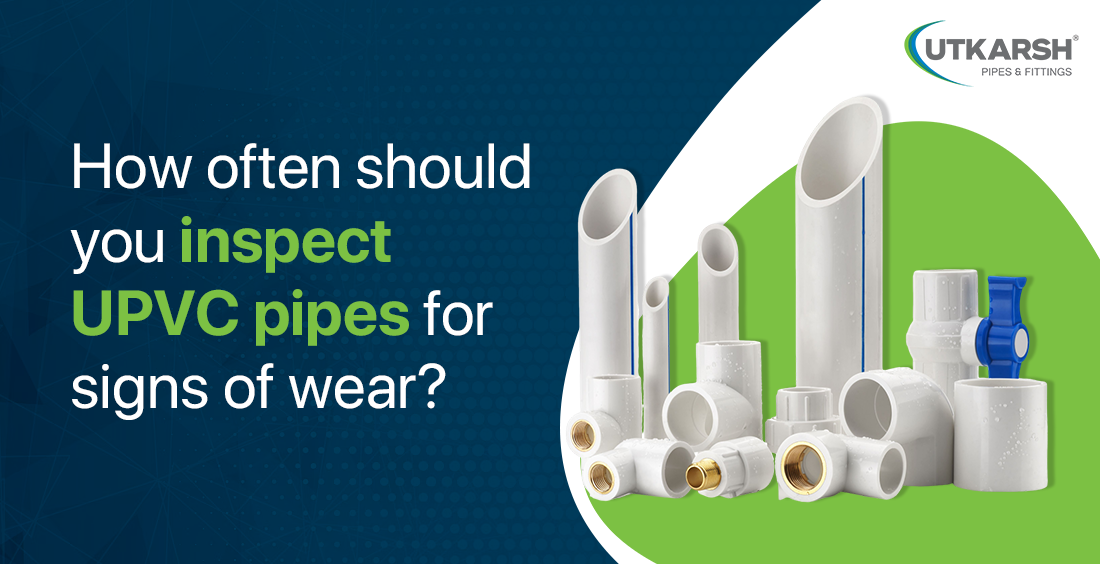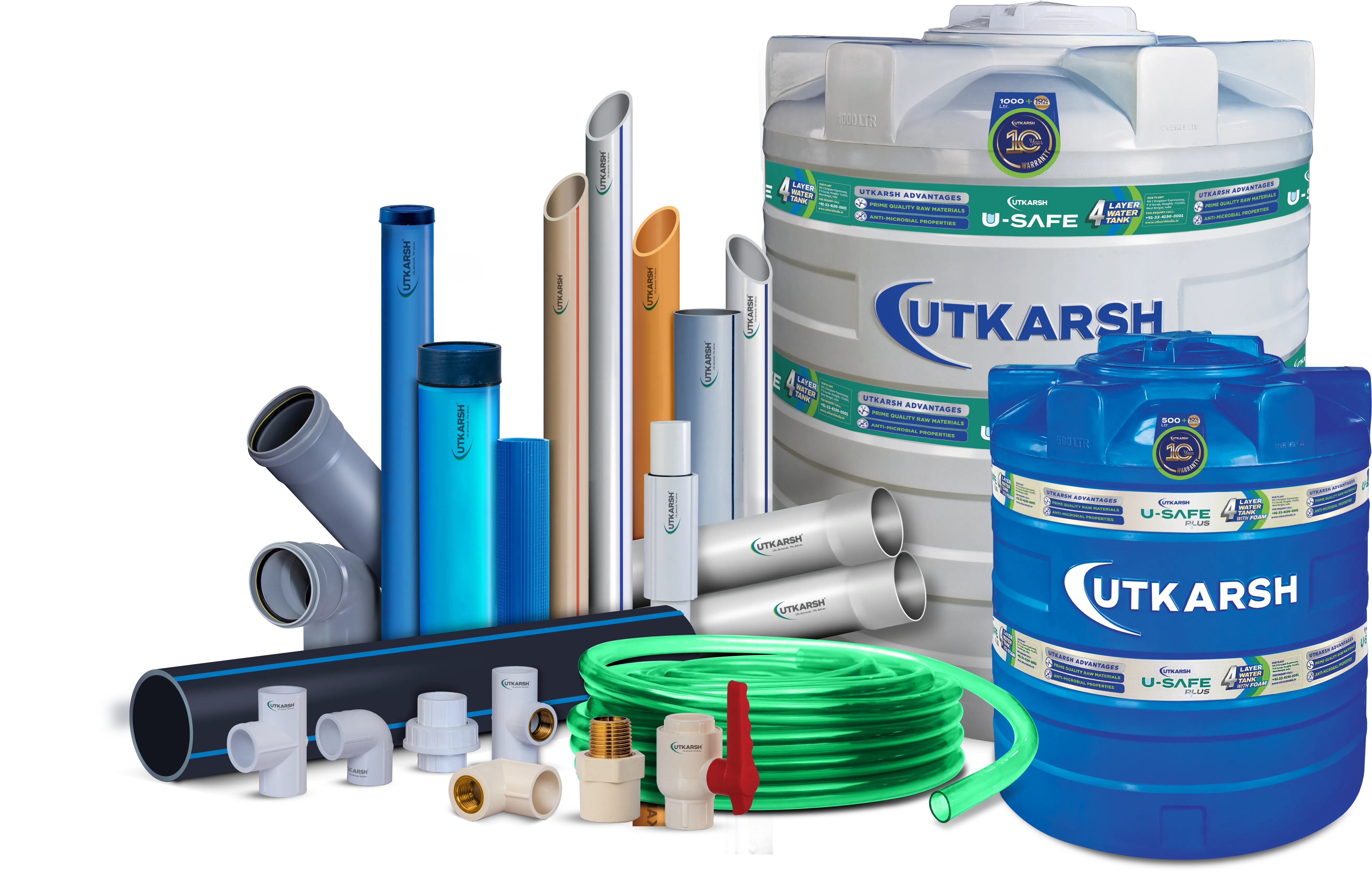How often should you inspect UPVC pipes for signs of wear?

UPVC pipes are widely used in both residential and commercial properties due to their durability and reliability. They are a popular choice for plumbing and drainage systems as they resist rust and corrosion, even in damp environments. This makes them particularly suitable for areas with high moisture levels.
Another key advantage of UPVC pipes is their resistance to many chemicals. They can safely handle household cleaning products and certain industrial waste without degrading, ensuring a long lifespan with minimal maintenance.
Despite their strength, UPVC pipes are not completely immune to wear. Temperature fluctuations, high water pressure, and physical damage can affect their condition over time. Regular inspections help identify minor issues before they escalate into costly repairs. Below, we explain how often UPVC pipes should be inspected and what signs of wear to look for.
Why Do Regular Inspections Matter?
UPVC pipes are designed to last for years, but they are not indestructible. Small cracks, leaks, or blockages can develop gradually and lead to serious problems if left unchecked. Regular inspections help detect these issues early, preventing expensive repairs and potential water damage.
Neglecting inspections can result in leaks, water wastage, and even structural damage. In extreme cases, pipes may burst. A simple inspection every few months can save both money and unnecessary stress.
How Often Should You Inspect UPVC Pipes?
UPVC pipes should ideally be inspected every six months. This routine helps identify early signs of wear before they become major concerns. In high-usage areas such as kitchens, bathrooms, and utility rooms, inspections may need to be more frequent.
Weather conditions also influence inspection frequency. In regions with extreme temperatures, UPVC pipes may expand or contract, weakening joints and increasing the risk of leaks. Pipes exposed to direct sunlight should be checked more often.
For industrial and commercial properties, quarterly inspections are recommended. These systems often operate under higher water pressure and are exposed to chemicals, making regular checks essential to maintain efficiency and prevent unexpected failures.
Signs of Wear to Look For
When inspecting UPVC pipes, keep an eye out for the following:
Visible cracks, leaks, or discolouration—small cracks can worsen over time
Water stains on walls or ceilings near pipe routes, indicating slow leaks
Musty odours that may suggest hidden moisture build-up
Weak or loose pipe joints that could lead to leaks or disconnections
Warping or soft spots on the pipe surface caused by heat exposure
Unusual sounds such as dripping or hissing, which may signal pressure issues or hidden leaks
Using a torch can help inspect dark or concealed areas more effectively.
Common Causes of UPVC Pipe Wear
Understanding what causes wear helps prevent damage and prolongs pipe life:
Temperature changes: Expansion and contraction weaken the material over time
High water pressure: Excess pressure strains joints and increases leak risks
Chemical exposure: Harsh or incompatible chemicals can degrade UPVC
Physical damage: Accidental impacts may crack or weaken pipes
Blockages: Grease, soap, and debris increase internal pressure and cause leaks
Preventative Maintenance Tips
Regular care can significantly extend the lifespan of UPVC pipes:
Avoid harsh chemical cleaners
Insulate exposed pipes against extreme temperatures
Monitor and regulate water pressure
Flush pipes regularly to prevent debris build-up
Secure loose pipes to minimise movement and stress
When to Call a Professional
Certain issues require professional expertise. Persistent leaks, major cracks, or severe blockages should be addressed by a qualified plumber. Professional inspections may involve advanced tools such as pressure testing or thermal imaging to detect hidden problems. Periodic expert inspections can prevent major failures and reduce long-term costs.
Importance of Choosing the Right UPVC Pipe Manufacturer
A reliable upvc pipe manufacturer focuses on quality, durability, and compliance with industry standards. High-grade raw materials, rigorous testing, and advanced manufacturing processes ensure resistance to wear, environmental stress, and chemical exposure.
Leading upvc pipe fittings manufacturers also provide accurate installation guidelines, technical support, and warranties—offering long-term assurance of performance and reliability.
Trusted UPVC Pipes and Fittings from Utkarsh Pipes
Looking for dependable upvc pipe manufacturers and the best pipe and fittings suppliers for your next project?
Utkarsh Pipes is a trusted manufacturer and supplier of uFLO UPVC pipes and fittings, designed for cold water transportation across domestic and industrial applications. Manufactured from unplasticised polyvinyl chloride with excellent UV resistance, uFLO UPVC pipes offer a durable, cost-effective, and efficient solution.
Produced using premium raw materials and adhering to international standards, uFLO UPVC pipes comply with ASTM D 1785 (Schedule 40 & 80), while fittings meet ASTM D 2467 (Schedule 80) specifications. Each product undergoes stringent quality checks to ensure strength, reliability, and long-lasting performance.
Key Features:
Lead-free and non-toxic
UV and weather-resistant
Chemical and corrosion-resistant
Leak-proof joints
Pressure-resistant
Low thermal conductivity
Mirror-smooth inner surface for improved flow
No scaling or sediment build-up
To know more about UPVC pipe price or product specifications, get in touch with the Utkarsh Pipes team.












